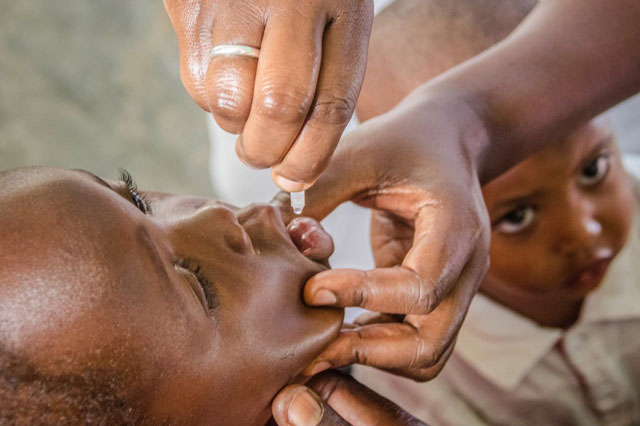
Kampala, Uganda | THE INDEPENDENT | The resurgence of polio in Uganda is an indication that children have not been fully vaccinated.
Dr Annet Kisakye, the immunization focal person at the World Health Organization Uganda office says that while the Ministry of Health is attributing the outbreak to cross border movement from South Sudan, there’s a big gap in immunization in the capital city with a lot of children only taking bits of the three-dose jabs.
Kisakye’s revelations are corroborated by a recent survey by researchers at Makerere University School of Public Health which found major gaps in immunization among both upscale residents of the city and slum dwellers.
According to the study which has been done in two phases from June 2019 to May 2020, and from June 2020 to July 2021, 41.8% of the children living in Kampala slums have not been fully vaccinated for routinely scheduled immunisable diseases including polio.
Almost the same number at 40.9% of children living in areas inhabited by the affluent like Kololo have also not been vaccinated.
With such worrying trends, Kisakye says once the two samples were picked through sentinel surveillance in Lubigi and Bugolobi late last month, they embarked on random stool testing among children in Kampala and so far the results have come out negative. 120 samples have been tested.
The fear according to experts like Kisakye is that the virus has been circulating in Uganda undetected longer than the authorities could estimate. Already, genome sequencing by a laboratory in South Africa where Uganda Virus Research Institute (UVRI) sent the samples for further analysis has found that the virus mutated about 28 times from the closest match of mutants.
Dr Henry Mwebesa, the Director-General of Health Services in the Ministry of Health acknowledges the fact that the virus could have been here longer.
“Such undetected transmission suggests that there are gaps in the national polio surveillance sensitivity that need to be identified and corrected urgently”, he said.
Mwebesa noted that the country is planning to conduct a quick polio immunization campaign in October where children under the age of five will be given an oral booster dose. The exercise will be conducted house to house to ensure that every child is reached.
But even as a campaign is being suggested as a quick fix, Dr Faith Namugaya, one of the Makerere researchers that surveyed Kampala says Uganda is good at such campaigns but has completely failed to ensure that routine immunization is strengthened especially in urban areas.
She says for instance that 99% of the caregivers to children who had only been partially immunized in their survey had inadequate information on not only the jabs they need but even where to access them.
Even health workers are insufficiently educated on immunization she says, yet health facilities are given written guidelines by the Ministry of Health to follow while providing information to caregivers.
For now however, Kisakye says Uganda should be cautious considering that they are now opening up to Afghanistan refugees where wild poliovirus type 1 is still very prevalent.
Polio is very contagious and spreads through contact with the stool of an infected person and droplets from a sneeze or cough of an infected person.
*****
URN
 The Independent Uganda: You get the Truth we Pay the Price
The Independent Uganda: You get the Truth we Pay the Price



